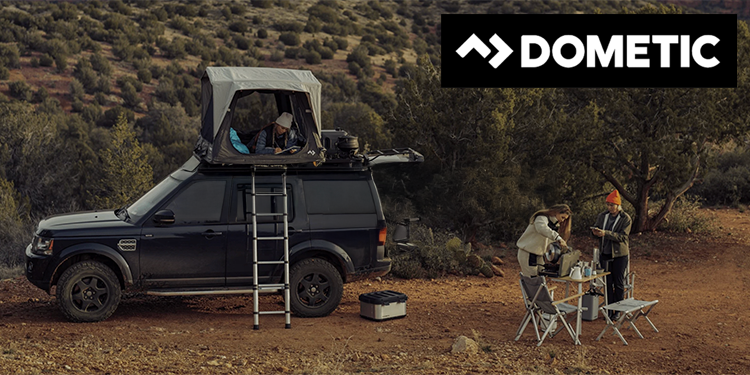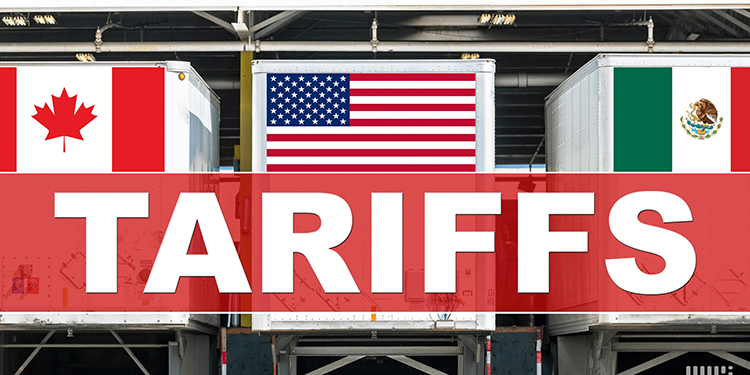Canadians Staying Put Due to Economic & Political Climate – RVBusiness – Breaking RV Industry News
Recent threats of steep economic tariffs leveled at Canada have many Canadian campers changing plans for summer and winter stays at U.S. campgrounds.
Many U.S. campground owners aren’t expecting to see anywhere near their normal numbers of Canadian summer campers this year, and southern parks that rely on Canadian snowbirds are preparing for a steep decline in long-term visits from our northern neighbors.

“Year to date, we’ve already seen a 23% decline in reservation stays from Canadians on (Kampgrounds of America) U.S. campgrounds,” said Toby O’Rourke, president & CEO of Kampgrounds of American Inc.
“Looking ahead, reservations on the books for KOA parks in the U.S. by Canadians are down 49%,” O’Rourke said. “We’ve had 4,300 cancellations on 2025 reservations on U.S. parks.”
The states with the most cancellations for KOA include Florida, Tennessee, Arizona and Montana.
The story at KOA parks in the U.S. is one being repeated at other chain and independent U.S. campgrounds. The situation is especially acute along the northern U.S. border states.
“The Maine Campground Owners Association (MECOA) recently attended the Montreal RV Show, which was certainly a challenge this year,” said Kathy Dyer, executive director of MECOA. “The distribution of the Maine Camping Guide was down approximately 84% compared to last year.”
Dyer said tourism officials in Ontario and other Canadian provinces have told her that Canadian interest in staying in Canada to camp is up substantially.
While the on-again, off-again threat of tariffs coupled with tougher border restrictions on Canadians entering the U.S. has captured most of the headlines, other factors are also at play.
The current exchange rate (the Canadian dollar was trading at about 72 cents on the U.S. dollar on April 15) is also having a major impact on changing Canadians’ plans for a U.S. summer vacation.

“Lodging reservations from our Canadian friends appear to be down in some areas of the state,” said Dryer, regarding Maine’s situation. “Everything that is happening along with the unfavorable exchange rate is causing distress for many parks and causing a significant shortfall in summer revenue.”
KOA’s O’Rourke said she was so concerned about the future for Canadians camping in the U.S. that she fielded new research in mid-March specifically addressing that issue.
“We found that 20% of Canadian campers report they plan to camp in the U.S. this year, while 23% of Canadian campers who have camped in the U.S. before said they do not plan to this year,” O’Rourke said.
Those surveyed were from a group of all Canadian campers, not just KOA campers.
O’Rourke pointed out that since this is the first time research has been conducted asking these questions, there is a lack of comparative, year-to-year data. The results also don’t cite the reasons for not camping this year in the U.S.
“It could be economic, political or due to schedules or other camping plans,” she said.
O’Rourke also pointed out that while Canadian campers may be giving the U.S. the cold shoulder this season, the same isn’t quite as true for U.S. campers intending to head north.

“About 33% of U.S. campers say they plan to camp in Canada this year,” she said.
KOA’s data is being reflected at other camping-related businesses.
Pathfinder Ventures Ltd., which owns a portfolio of parks in Canada, reported in late March that bookings for April 2025 are 48% higher than the same period last year. Looking further ahead, advance bookings for the upcoming months are already up by nearly 10% year over year.
This data suggests two key trends: in the short term, more Canadians are opting to stay local, and in the long term, travelers are increasingly planning summer vacations within Canada rather than in the U.S.
“The strong increase in bookings for our RV Resort portfolio reflects growing demand for local vacation options. We are well positioned to take advantage of this growing trend and look forward to the continued potential of our parks across Western Canada,” said Joe Bleackley, CEO of Pathfinder.
Campground management software company Campspot is reporting that it is seeing a sharp decline in Canadian camper bookings at the nearly 3,000 campgrounds that use its software.
“In looking at bookings made in January and February for future stays, in 2024 Canadian travelers represented 2.9% of all U.S. campground bookings,” said Casey Cochran, vice president of partnerships & business development for Campspot. “In 2025 it was 1.9% – a 35% decline in mix.”
Cochran said when looking at the period covering the first eight days of March, in 2024 Canadians represented 2.7% of camping business for U.S. campgrounds, but that has dropped to 1.4% during that same period in 2025 — a drop of nearly 50%.

“So far, our New York, Utah and Minnesota parks have seen a decline in Canadian bookings,” said Rachel Godbout, COO for Advanced Outdoor Management. “They (Canadian bookings) are normally about 8% of our market.”
Godbout said while her company is seeing a “significant effect” from the lack of Canadian camper reservations, it’s still too early to specifically quantify.
“As of this moment in time, we are seeing as low as 38% and as high as 50% of our Canadian guests that have not rebooked for this year,” she said. “The hard part of that statistic is that it is too early to tell if they will book just with a shorter lead time, or if they will not book at all.”
Those recent numbers are a sharp departure from what many tourism experts were expecting in 2025. The research firm Tourism Economics had earlier forecasted that travel to the U.S. would grow about 9% in 2025. Now, the firm has updated its forecast, expecting overall foreign travel to decline by more than 5%. Tourism Economics is now reporting an expected 27% decline in U.S. hotel room demand by Canadian travelers in 2025 due to expected tariffs, slower economies, a stronger U.S. dollar, and overall foreign antipathy towards the U.S.
After President Trump first announced his tariff plans for Canada in February, border crossings by Canadians fell by 24% compared to the same period in 2024.
The U.S. Travel Association, a nonprofit group that represents the U.S. travel industry, said Canadians made 20.4 million visits to the U.S. in 2024 and spent about $20.5 billion on those visits. Therefore, a mere 10% drop in Canadian visits in 2025 would amount to a $2.1 billion loss to U.S. businesses, including campgrounds.

Tourism departments in some border states, such as North Dakota, have paused marketing programs aimed at luring Canadians until the current tense situation eases.
‘Frightened & Angry’ Canadians
Park owners and operators across the U.S. are seeing a major change in attitudes among their Canadian campers.
“The Canadians are a bit frightened, and frankly they are angry,” said Daniel Wright, assistant manager of The Springs of Borrego RV Resort in Borrego Springs, Calif.
Wright said rumors of new policies making it harder to cross the border are only adding to Canadian’s angst.
“This is terrible for our business and our friendships with so many of our polite and gentile neighbors,” he said.
President Trump’s threat to make Canada “the 51 state” also doesn’t sit well with Canadian travelers.
Snowbirds Flocking Elsewhere
While campgrounds in the northern tier states are girding for a summer without many of their normal short-term Canadian visitors, parks that rely on long-term Canadian snowbird stays say their businesses will be severely impacted if expected tariffs take effect.
“I am losing at least six Canadian guests who have come here every year for the last 5 to 10 years,” said Nancy Schreiber, property manager at the Paradise Island RV Resort in Oakland Park, Fla. “They are not returning because of the exchange rate, and they are telling me it is (also) because of the politics of the Republican Party that is keeping them from coming back next year.”
Schreiber also said she’s losing at least two more Canadian campers who plan to take their business all of the way to Mexico.
“They say that even with the gas from Quebec to Mexico, that it is cheaper for them,” Schreiber said. “We started booking for next year on April 1. Normally I fill all of my sites on that day and have up to 25 people on the waiting list. Yesterday (April 1) was totally quiet, and I still have several sites open for next winter. I have been the manager here since 2012, and I have never had an open winter site on April 2. They (Canadians) are angry. This is definitely affecting my occupancy.”
Robyn Koromhas, regional vice president for KOA, said cancellations at KOA-owned properties in Florida were off the charts in January and February.
“Our Florida campgrounds have experienced the most notable impact,” Koromhas said.
She said the Florida KOAs she oversees saw a total of 2,917 nights canceled in the period between 2022 and 2024. Those same Florida campgrounds have seen Canadians cancel 1,320 nights of camping in January and February 2025 alone. The impact was less severe at KOA’s Texas locations, which saw 177 canceled nights this past January and February, compared to 369 nights in all of 2022 to 2024.
Koromhas pointed out that her data does not account for how many Canadians opted not to make reservations in 2025 in the first place. It only measured reservation nights canceled. She also said that KOA offers long-term Canadian campers’ year-around occupancy deals that require payment for 5-6 months of actual occupancy and 6-7 months of on-site storage for their RVs.
“(Long-term) Canadians hesitant to visit the U.S. might pay without coming, sell their rigs to other campers or sublet them under specific conditions,” Koromhas said.
She said Canadian campers have expressed disappointment with new registration requirements to enter the U.S.
“Additionally, many Canadians rely on third-party insurance while in the U.S., and concerns about its availability and high cost might further deter their travel plans,” she said.
Tim Deputy, of Summit Real Estate Holdings Inc., said he’s not yet seeing a large number of Canadians canceling their snowbirding plans at Summit properties in Florida. He said Canadian campers, who make up about 20% of total winter campers at Summit’s Florida properties, make long-term winter plans every year and are likely taking a “wait and see” approach.
“Usually in the last week of March we’ll see the start of the great migration north of our Canadian campers,” Deputy said. “Many of them own their park models in Florida and they are a three-month to five-month snowbird. We’re always concerned about them re-booking for the next year, but we haven’t yet seen a tremendous amount saying they aren’t coming back. I think they are going to wait because they don’t want to lose their site.”
This story was written by Mike Gast.






